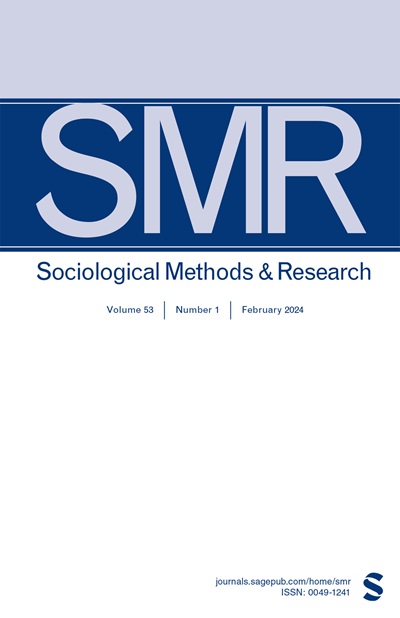Networks Beyond Categories: A Computational Approach to Examining Gender Homophily
IF 6.5
2区 社会学
Q1 SOCIAL SCIENCES, MATHEMATICAL METHODS
引用次数: 0
Abstract
Social networks literature has explored homophily, the tendency to associate with similar others, as a critical boundary-making process contributing to segregated networks along the lines of identities. Yet, social network research generally conceptualizes identities as sociodemographic categories and seldom considers the inherently continuous and heterogeneous nature of differences. Drawing upon the infracategorical model of inequality, this study demonstrates that a computational approach – combining machine learning and exponential random graph models (ERGMs) – can capture the role of categorical conformity in network structures. Through a case study of gender segregation in friendships, this study presents a workflow for developing a machine-learning-based gender conformity measure and applying it to guide the social network analysis of cultural matching. Results show that adolescents with similar gender conformity are more likely to form friendships, net of homophily based on categorical gender and other controls, and homophily by gender conformity mediates homophily by categorical gender. The study concludes by discussing the limitations of this computational approach and its unique strengths in enhancing theories on categories, boundaries, and stratification.超越类别的网络:研究性别同源性的计算方法
社会网络文学探讨了同质性,即与相似的人联系的倾向,作为一个关键的边界制定过程,有助于沿着身份的路线隔离网络。然而,社会网络研究通常将身份概念化为社会人口分类,很少考虑差异的内在连续性和异质性。利用不平等的次分类模型,本研究证明了一种计算方法-结合机器学习和指数随机图模型(ergm) -可以捕捉网络结构中分类一致性的作用。通过对友谊中性别隔离的案例研究,本研究提出了一个开发基于机器学习的性别一致性测量的工作流程,并将其应用于指导文化匹配的社会网络分析。结果表明,具有相似性别一致性的青少年更容易形成友谊、基于类别性别和其他控制的同质网络,性别一致性介导类别性别的同质。研究最后讨论了这种计算方法的局限性,以及它在加强分类、边界和分层理论方面的独特优势。
本文章由计算机程序翻译,如有差异,请以英文原文为准。
求助全文
约1分钟内获得全文
求助全文
来源期刊

Sociological Methods & Research
Multiple-
CiteScore
16.30
自引率
3.20%
发文量
40
期刊介绍:
Sociological Methods & Research is a quarterly journal devoted to sociology as a cumulative empirical science. The objectives of SMR are multiple, but emphasis is placed on articles that advance the understanding of the field through systematic presentations that clarify methodological problems and assist in ordering the known facts in an area. Review articles will be published, particularly those that emphasize a critical analysis of the status of the arts, but original presentations that are broadly based and provide new research will also be published. Intrinsically, SMR is viewed as substantive journal but one that is highly focused on the assessment of the scientific status of sociology. The scope is broad and flexible, and authors are invited to correspond with the editors about the appropriateness of their articles.
 求助内容:
求助内容: 应助结果提醒方式:
应助结果提醒方式:


